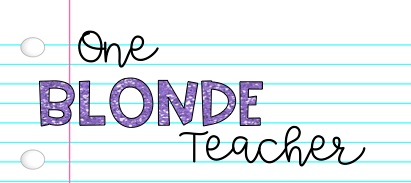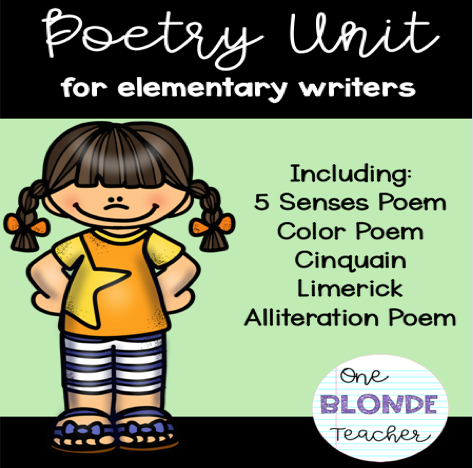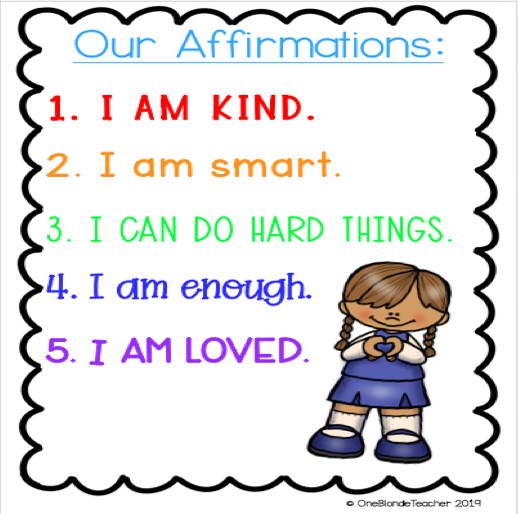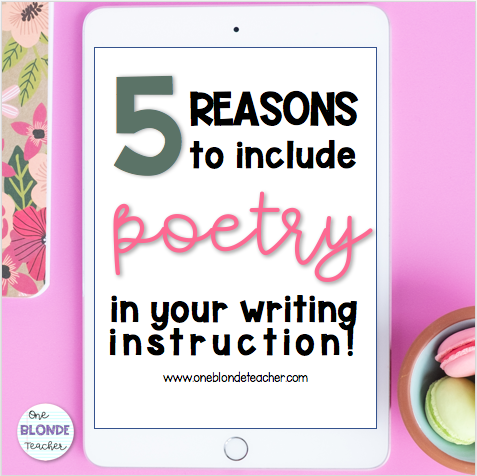
Let’s talk about poetry.
I feel so bad for poetry. It gets the short end of the stick. It isn’t an area of real concern in common core writing, and we tend to gloss over reading it. We assign it to one month of the year, if we teach it at all. Sometimes we recite poems near the holidays with our kids, or instruct students to write an acrostic for Valentine’s Day or Mother’s Day, but honestly, poetry writing and reading has been largely left out of many modern classrooms. That said, poetry is beautiful, expressive, and a fun way to play around with language. Being able to read and write poetry helps our kids think creatively, and leads to more well rounded readers and writers, which is why I think poetry writing is so important for our elementary kids. Here are 5 reasons why including poetry writing in your classroom is so important.
It challenges our students.
Writing is a challenge for many students. We spend the whole year teaching kids to perfect the paragraph and to vary their transition words. As it turns out, writing poetry is just as challenging for many kids! When writing a specific poem like a Limerick, kids not only have to tell a story, but they have to generate rhymes, follow a rhythm, and apply rhyme patterns. Another style, like a haiku, may challenge them to reword a line to contain only a certain number of syllables. For even the most creative kids this can be challenging, and forces kids to think of many ways to express a thought.
It provides the perfect opportunity to review and apply reading and grammar skills.
For those of us in the primary grades, and even those in the intermediate, we spend a good deal of time teaching and reviewing different parts of speech. We also work on identifying alliteration, rhyming words, and rhythm in various texts. So what better way to put those skills we’ve worked on all year into practice then to apply them to poetry writing? Again, various poetry styles require many different rules to be followed. Some poems require the use of verbs or adjectives while others require a select syllable count or rhyme scheme. While writing poetry, kids are thinking about these concepts and applying them in ways they don’t when writing an opinion or informational piece. Poetry writing is a great way to organically review these concepts as students try their hands at something new.
It lends itself to high engagement.
Poetry writing can totally be engaging. Get their minds going by reading aloud some silly poems (my class is LOVING Jack Prelutsky) or by showing them how their favorite pop song is really a poem. Into room transformations? Set up a poetry “cafe” in your room by dimming the lights and playing some low jazz music. Give kids the chance to read their original poems to their classmates, and encourage listeners to snap for their friends rather than clap. Some of my most memorable moments from elementary school relate to our poetry units, and taking the time to teach poetry writing can offer those kinds of memories for your kids, too!
It can easily relate to other content areas.
Learning about famous Americans? Teach kids to write a bio poem about whoever they’re researching. Studying varying ecosystems or geographic landmarks? Write haikus that tell about them. Discussing the seasons? Create 5 Senses poems to describe each season in detail. Poetry writing can easily be adapted to bring literacy into science and social studies units and to see how students are comprehending new information.
It doesn’t have to be difficult.
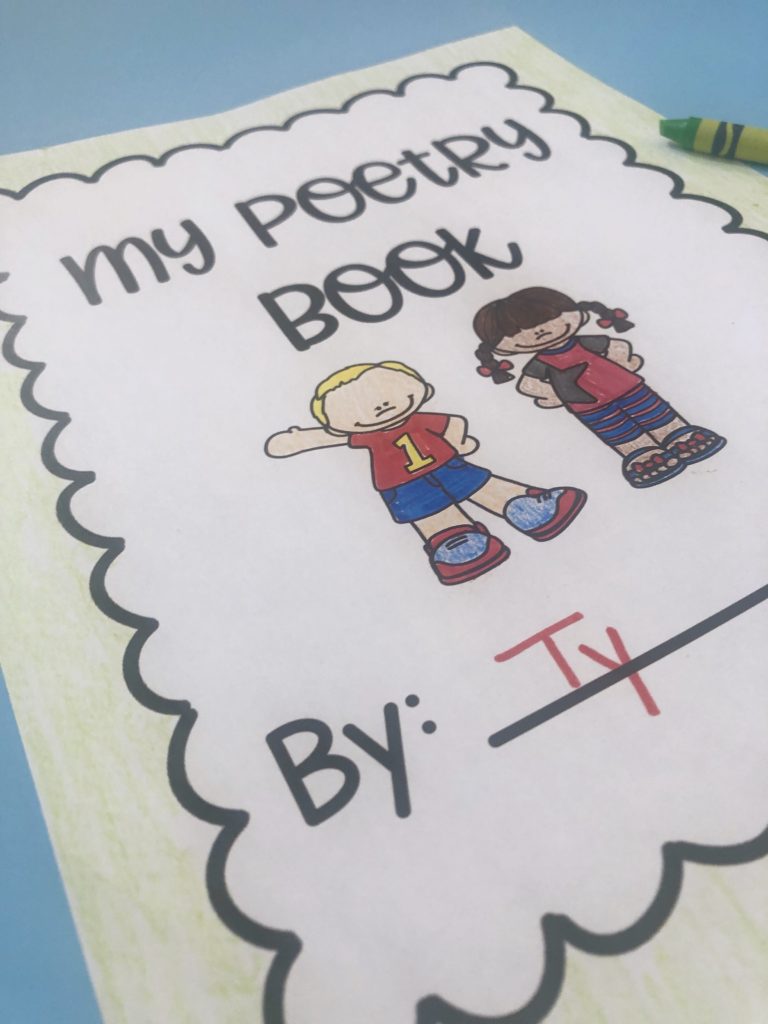
With my 2nd Graders, we study a different style of poetry every two days during our poetry unit. On the first day we discuss a style of poem and read an example. Then we write one as a class, and I have kids plan their own poems in that same style. The second day kids edit, revise, and write final copies to add to their poetry books. Obviously, this timeline could go slower or faster depending on your kids and what they need to produce quality writing. Sometimes we think teaching has to be so difficult because our standards or assessments lean that way, but with poetry, the stakes are low and the return is high. Simply giving kids a little time to play with language can lead to excitement and enjoyment in your writers, and it can be easy for you, too!
Are you interested in adding poetry writing to your instruction but not sure where to start? Do you already teach poetry writing but want to change up your instruction? I’ve compiled a mini unit where kids learn about, plan, and publish 5 poems of various styles that is perfect for a few days of poetry instruction (it took about two weeks in my classroom!) Follow the link to find it in my store, and let me know how it goes for you!
https://www.teacherspayteachers.com/Product/Poetry-Writing-Unit-4543019
Don’t forget: May 7th and 8th 2019 is the TPT Sitewide Teacher Appreciation sale! Stop by and pick up a few items to support your instruction at a discounted price 🙂
Lots of love,
Ty
